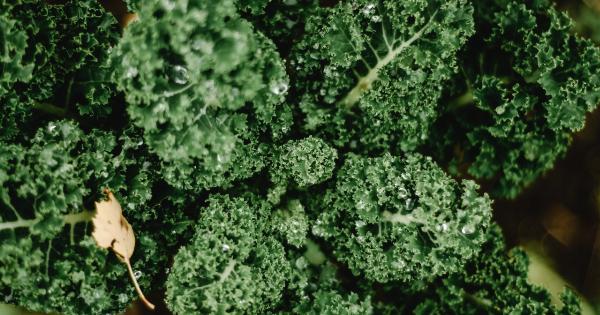Heart disease is one of the leading causes of death worldwide. It is a condition that affects the heart and its blood vessels, which supply blood and oxygen to the body.
Heart disease can be caused by several factors, including high blood pressure, high cholesterol levels, smoking, obesity, and lack of physical activity. However, a healthy diet that includes a variety of vegetables can help prevent heart disease. Here are 10 vegetables that are known to promote heart health:.
1. Spinach
Spinach is a leafy green vegetable that is high in fiber, potassium, and folate. Folate is a type of vitamin B that helps lower homocysteine levels in the blood.
High levels of homocysteine are associated with an increased risk of heart disease and stroke. Spinach is also a good source of iron, which is essential for healthy red blood cells.
2. Broccoli
Broccoli is a cruciferous vegetable that is rich in fiber, vitamin C, and potassium. It contains sulforaphane, a compound that has been shown to reduce inflammation and oxidative stress, both of which are known to contribute to heart disease.
Broccoli is also high in lutein, a carotenoid that may help prevent the formation of plaque in the arteries.
3. Tomatoes
Tomatoes are a good source of lycopene, a powerful antioxidant that has been shown to reduce the risk of heart disease. Lycopene helps prevent the oxidation of LDL cholesterol, which can lead to the formation of plaque in the arteries.
Tomatoes are also high in vitamin C and potassium, which are both important for heart health.
4. Carrots
Carrots are high in beta-carotene, a type of carotenoid that is converted to vitamin A in the body. Vitamin A is important for healthy vision, but it also has antioxidant properties that can help reduce the risk of heart disease.
Carrots are also high in fiber and potassium, which are both important for heart health.
5. Bell Peppers
Bell peppers are colorful vegetables that are high in vitamin C and potassium. They also contain capsaicin, a compound that has been shown to reduce inflammation and lower blood pressure, both of which are important for heart health.
Bell peppers are also a good source of fiber, which can help lower cholesterol levels.
6. Kale
Kale is a leafy green vegetable that is packed with nutrients, including vitamin C, vitamin K, and fiber. It also contains compounds called glucosinolates, which have been shown to help protect against the development of heart disease.
Kale is also rich in antioxidants, which can help reduce inflammation and oxidative stress.
7. Garlic
Garlic is a pungent vegetable that has been used for medicinal purposes for thousands of years. It contains a compound called allicin, which has been shown to help lower cholesterol levels and reduce inflammation in the body.
Garlic may also help improve blood flow and prevent blood clots, both of which are important for heart health.
8. Beets
Beets are a root vegetable that are high in vitamins and minerals, including folate, potassium, and manganese. They also contain nitrates, which are converted to nitric oxide in the body.
Nitric oxide helps dilate blood vessels, which can improve blood flow and lower blood pressure. Beets are also a good source of fiber, which can help lower cholesterol levels.
9. Sweet Potatoes
Sweet potatoes are a starchy root vegetable that are high in fiber, vitamin A, and potassium. They also contain antioxidant compounds called anthocyanins, which have been shown to help reduce inflammation and oxidative stress.
Sweet potatoes may also help improve blood sugar control, which can be beneficial for people with diabetes.
10. Asparagus
Asparagus is a green vegetable that is high in folate, fiber, and potassium. It also contains a compound called asparagine, which has been shown to help improve kidney function and reduce inflammation in the body.
Asparagus may also help improve blood sugar control, which can be beneficial for people with diabetes.


























